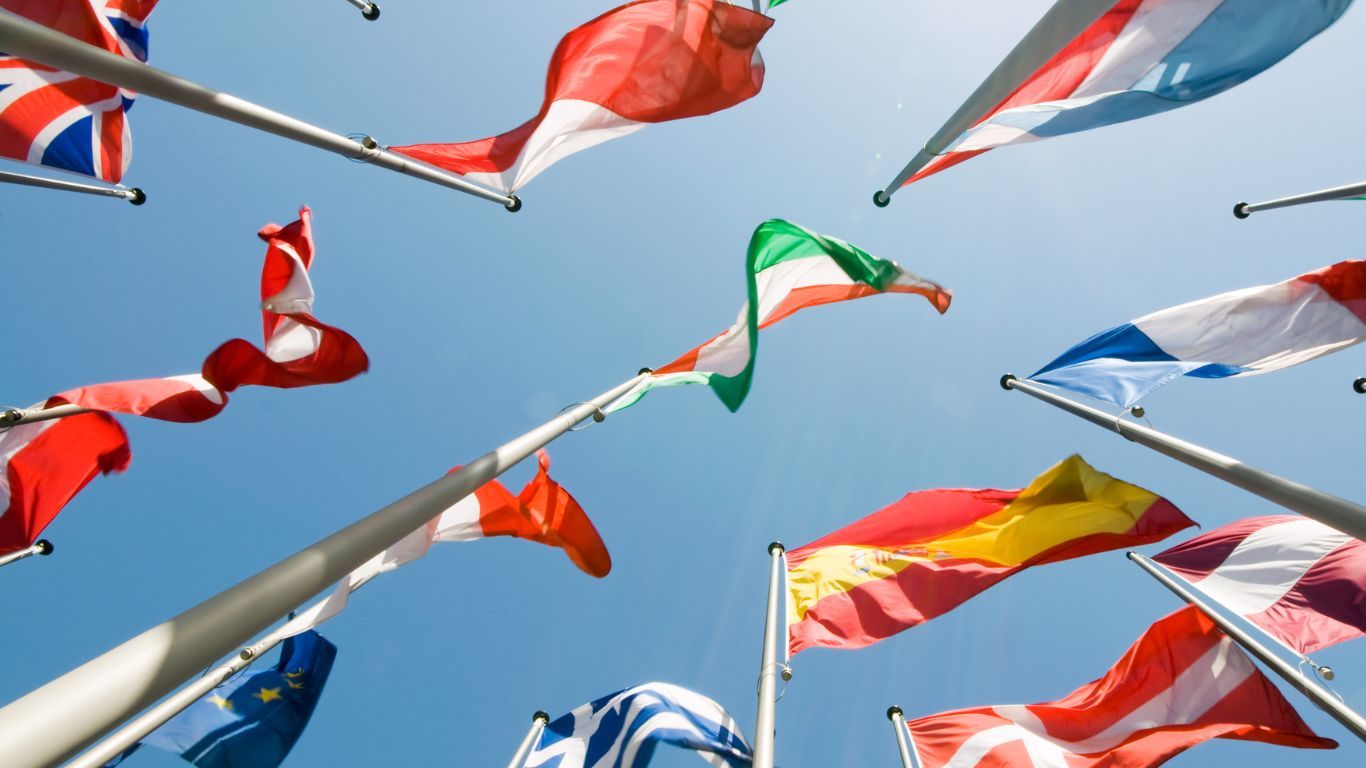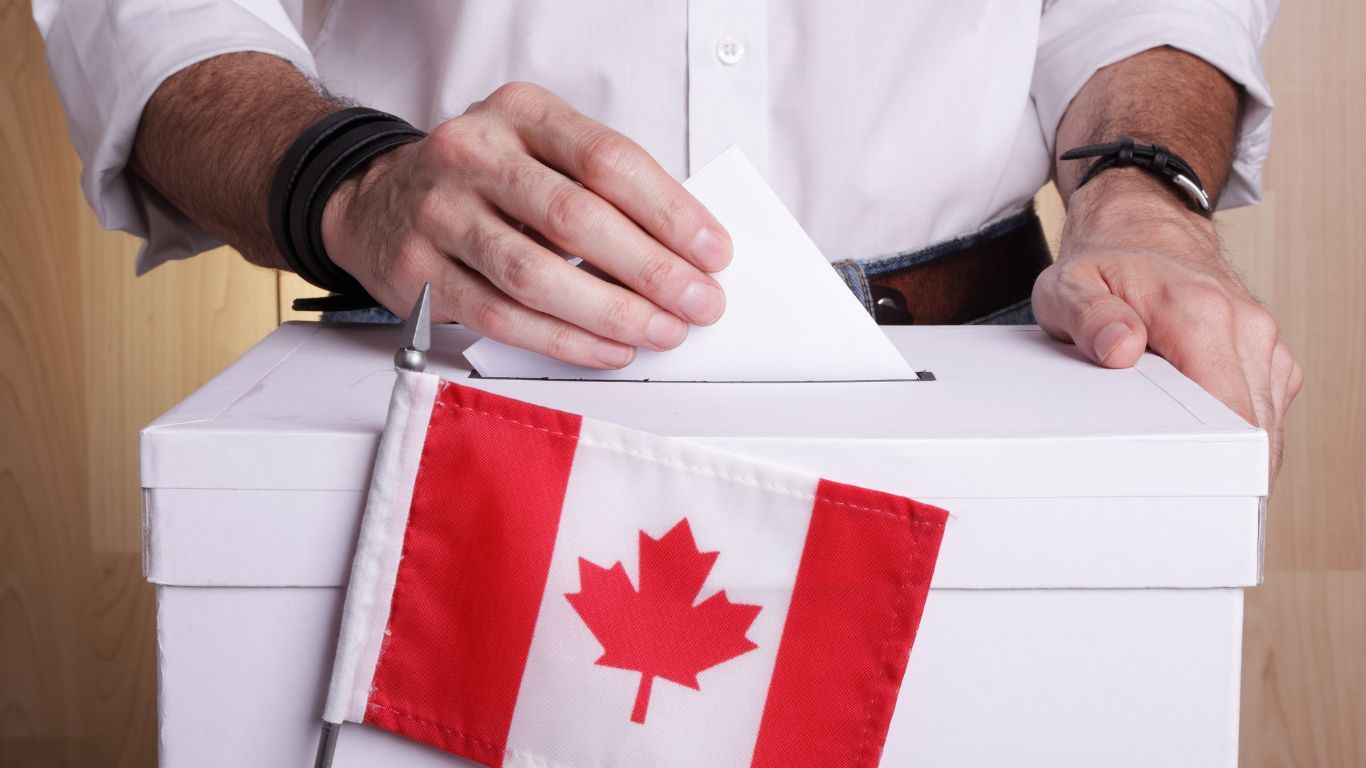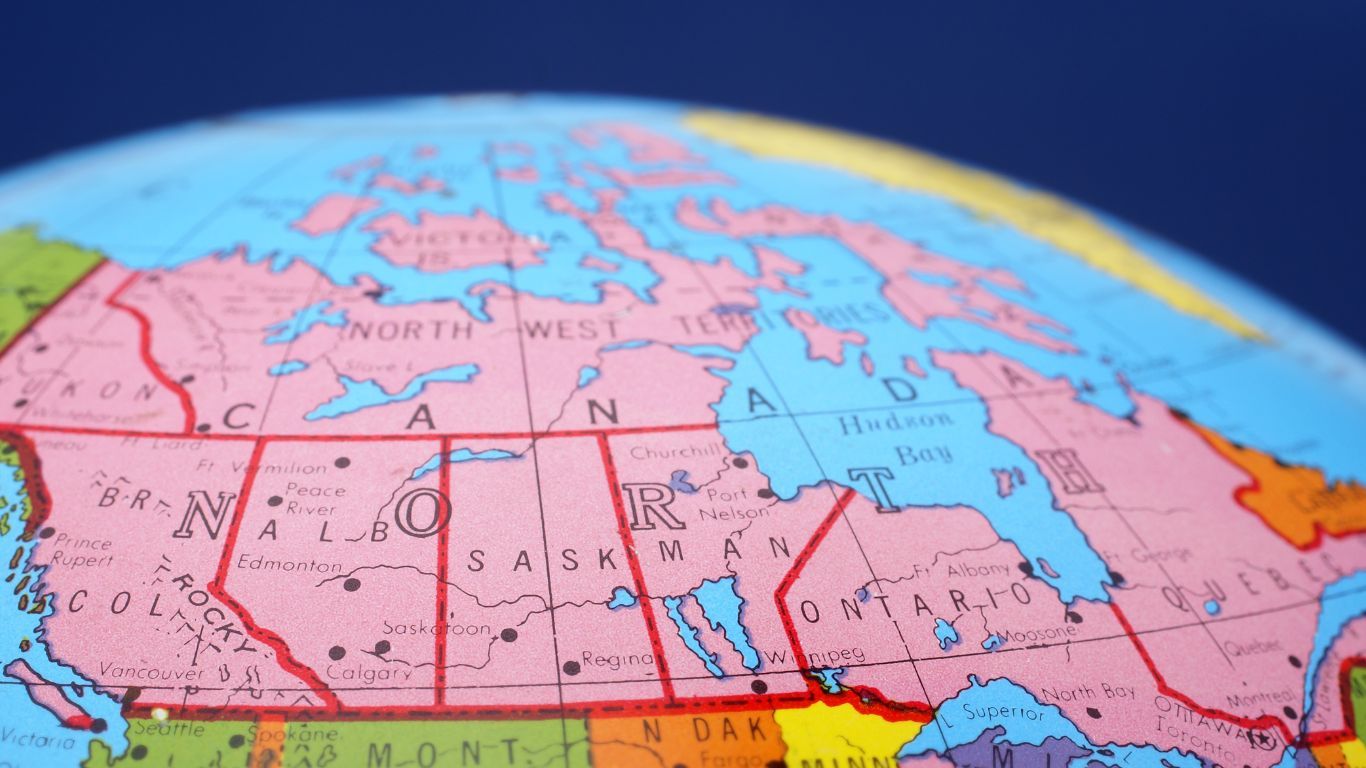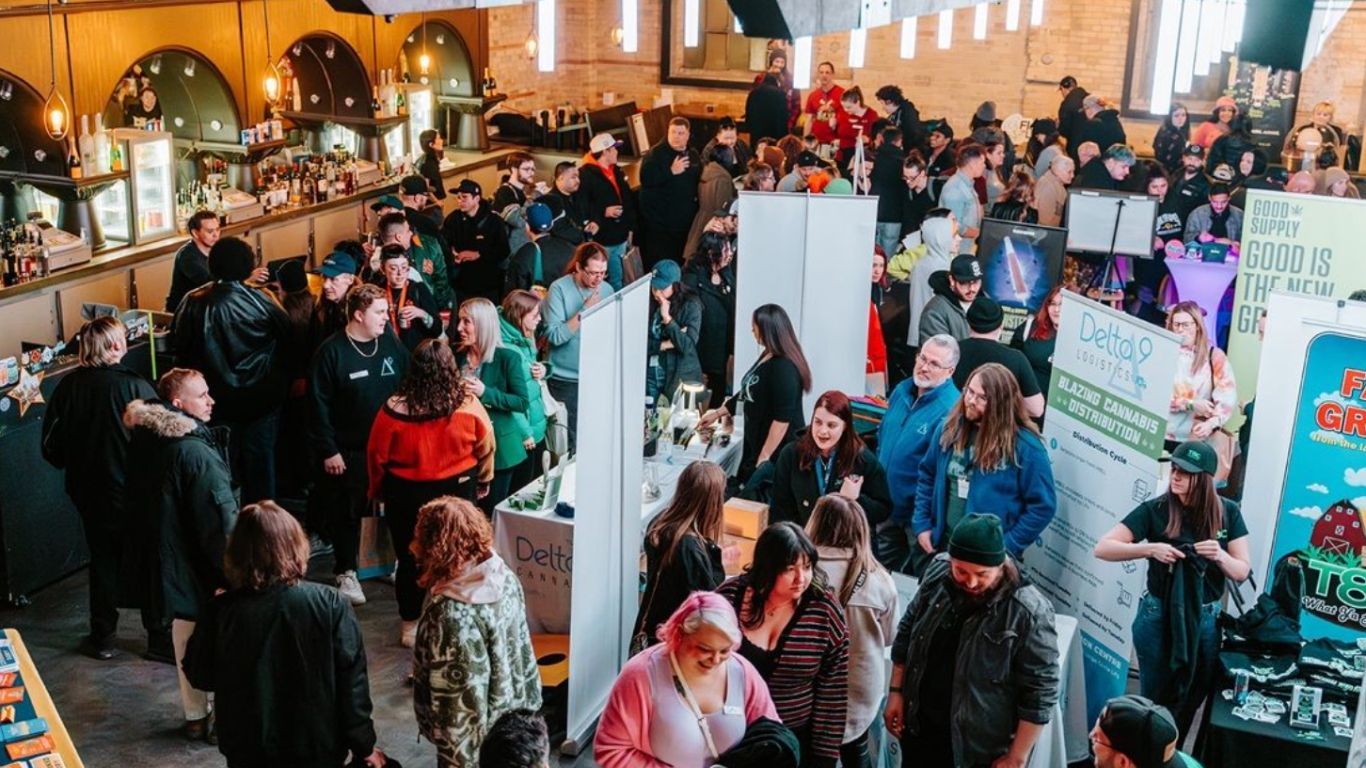
If you walk into a cannabis-focused event today, it might not look (or smell like) the massive conferences that sprouted up soon after legalization in the late 2010s. In fact, you might not be stepping into conference rooms at all.
From summer camp getaways to outdoor fairs featuring spikeball tournaments and consumption lounges, cannabis events in Canada have taken a sharp turn from the frothy and shoulder-to-shoulder conferences held in massive conference centres. With contraction and reduced spending also seeping into LP budgets, events aren’t as bustling as they used to be.
At the Grow Up Conference and Expo in cities such as Toronto and Edmonton, audience sizes have dwindled to a third of what they used to be pre-pandemic. A sprawling conference known to connect cannabis growers with B2B businesses and producers, these events have also lowered prices year after year for booths, says Randy Rowe, founder and CEO of Grow Up.
“First, the pandemic killed our momentum,” he says in an interview. “Then later we saw brands realize there was so much cannabis supply and not enough POs and they slashed their budgets, meaning they didn’t come to as many shows as they did before.”
To cite one provincial example, Ontario LPs have endured an 18% decline in revenues since 2019.
At Grow Up events, who is behind each booth has also changed over the past five years, says Rowe. Until 2020, most exhibitors were ancillary businesses such as CRM and fertilizer companies, but now brands have joined the fray. “We want growers to meet dispensaries and to meet brands, too,” notes Rowe, “and I remember a cool story that happened at our events where a BC grower met a brand who ended up buying two kilos of his cannabis right on the spot.”
All Grow Up events offer an indulgence that you wouldn’t have seen in 2019: age-gated outdoor consumption lounges that don’t serve alcohol.
That kind of space is also a key facet of KIND Magazine’s summer and winter fairs, known as “elevated cannabis events,” which feature more experiential activations than what is usually seen at major events such as the Lift Expo.
At the Toronto KIND summer and winter fairs in 2023, taking over a parking lot in downtown Toronto, more than 45,000 attendees walked through the doors, largely a mix of budtenders, brand owners and attendees, says Nicole Wolff, Chief Experience offer at KIND Media and Events.
Wolff says, “Our events are focused on the experiential. You won’t see us use a typical convention centre. Instead, we try to elevate the experience to build out thematic opportunities for brands, and we encourage our partners to think through how they can come to life beyond a booth and chairs.”
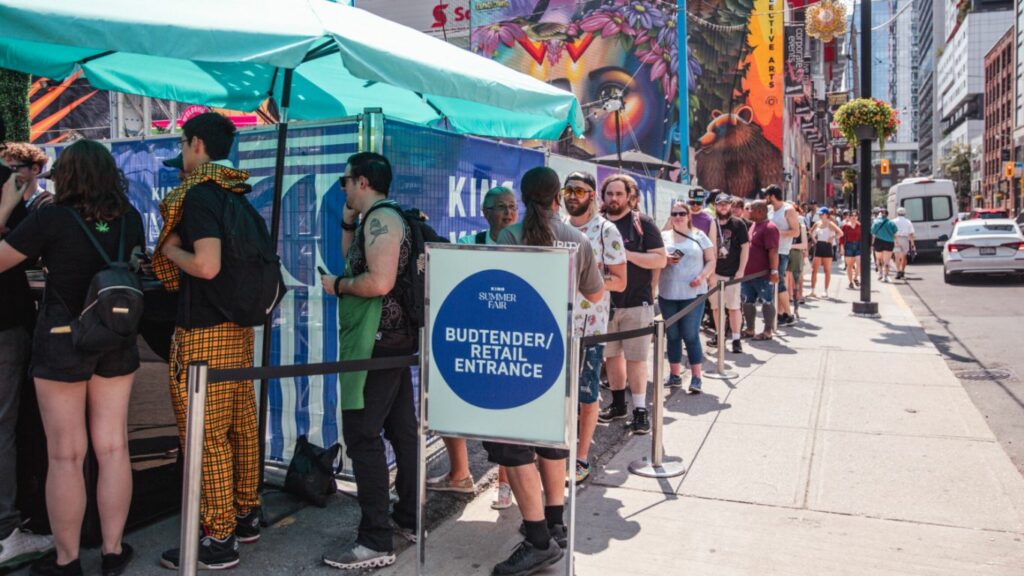
She adds how the KIND fairs, which are coming to Vancouver on April 11, took inspiration from music festivals where brand partners “have the ability to build awareness and loyalty with the consumer base they’re looking for.”
Spikeball tournaments, basketball courts, DJs, food trucks and glass-blowing demos are part of that casual, fun-oriented nuance of the KIND fairs that Wolff says is a key differentiator and evolution from what cannabis consumers typically see in an event.
What also marks KIND events as an outlier from past cannabis events are educational cannabis samples available for those in the industry (not everyday attendees). More tradeshows offer that kind of sampling, such as Grow Up events.
Rowe notes, “Brands want ROI on having a presence at events and giving away samples to potential clients is a part of that. Imagine going to a car dealer and never having a test drive of the car you want to buy.”
Other cannabis events want to stay as far away as possible from conference buildings and booths. The Blunts & Beans collective in Red Deer, Alberta, is now in its third year of managing Camp Canna, a three-day event on grounds near Pine Lake, Alberta. Offering a “stigma-free, fun and engaging environment fall levels of consumers,” Camp Canna could be considered an adult summer camp with cannabis threaded through the activities, says Alexis Dickson, co-founder of Blunts & Beans.
“We saw how consumer-focused events and tourism was missing from the Canadian cannabis scene,” says Dickson, adding how they have enjoyed 238% year-over-year growth in ticket sales.
Camp Canna features yoga sessions, slow-pitch baseball tournaments, live music, and open consumption, all in the hope of “creating a supportive and passionate community that continues to come back to our events year after year,” says Dickson.
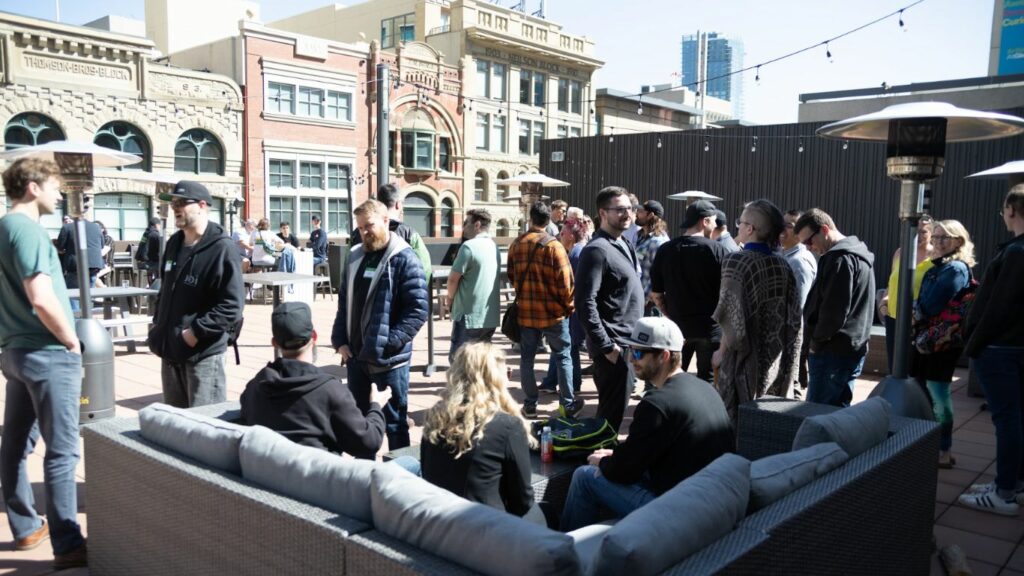
The camps have been such a success she decided to launch the first Camp Canna in Ontario, near the Haliburton Highlands, from May 31 to June 2.
The next step for many of these events is not just to attract more attendees, but also non-cannabis sponsors. Securing cannabis-oriented sponsors for Grow Up or KIND fairs has been straightforward, but organizers want to level up.
KIND’s Wolff notes how securing sponsorship with mainstream brands can be challenging. “Non-cannabis brands should be open to sponsoring these kinds of events because, at the end of the day, the people who attend our fairs aren’t just consuming cannabis–they have other hobbies and interests that are important to these brands.”
Rowe is also disheartened to watch major brands fail to materialize at cannabis events. Then again, he isn’t surprised. “Whether legal or not, cannabis still has a stigma attached to it, especially for Canadian branches of major American brands, since the US still hasn’t legalized cannabis. Also, today we’re seeing so many cannabis companies losing money and going bankrupt, so why would brands want to be attached to a struggling industry?”
By David Silverberg
Featured image: A “Token Tuesday” networking event in Winnipeg in 2024
Some upcoming 2024 cannabis industry events in Canada:
- Cannabis NB Expo: Fredericton NB, March 16
- CannExpo: Toronto ON, March 22-24
- TetherBuds B-Week: Vancouver BC, March 24; Oakville ON, March 27; Edmonton AB, March 28
- Niagara Falls 420 Expo: Niagara Falls ON, April 20
- StratCann Growing Relationships: Calgary AB, May 6
- GrowUp Conference & Expo: Toronto ON, May 27-29
- Camp Canna: Haliburton ON, May 31-June 2
- C-45 Quality Summit: Hamilton ON, June 7
- StratCann Growing Relationships: Kelowna BC, June 10
- Unicorn Music Festival: Salmo BC, August 9-12









